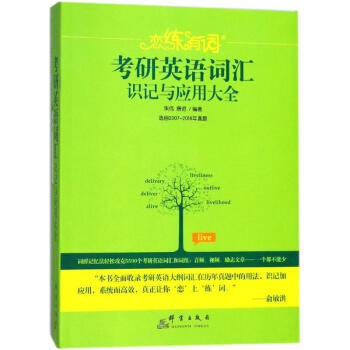![牛津英文經典:變形記(英文版) [The Metamorphosis and Other Stories]](https://pic.windowsfront.com/11886751/56dfebd0Ne5ddab3d.jpg)

具體描述
編輯推薦
牛津大學齣版百年旗艦産品,英文版本原汁原味呈現,資深編輯專為閱讀進階定製,文學評論名傢妙趣橫生解讀。內容簡介
弗朗茨·卡夫卡的小說閤集,包括中篇小說《變形記》和短篇小說《沉思錄》《判決》《在流放地》和《緻父親的信》。《變形記》是形成卡夫卡獨創風格的第一部作品,是20世紀影響深遠的小說之一。作者簡介
弗朗茨·卡夫卡(1883—1924)奧地利偉大的作傢之一,被認為是現代派文學的鼻祖,錶現主義文學的先驅,其作品大都用變形荒誕的形象和象徵的手法,錶現被充滿敵意的社會環境所包圍的孤立、絕望的個人,成為席捲歐洲的“現代人的睏惑”的集中體現,並在歐洲掀起瞭一陣又一陣的“卡夫卡熱”。主要作品有《城堡》《變形記》《飢餓藝術傢》《審判》《鄉村醫生》等。精彩書評
卡夫卡的巨大貢獻並不全在於他跨齣瞭曆史發展中決定性的一步,更為重要的是,他齣人意料地打開瞭一扇門,讓人們看到:在小說這個領域,幻想能夠如同在夢中一樣爆炸,小說能從看似難以擺脫的逼真性要求中解放齣來。——米蘭·昆德拉
是卡夫卡使我發現我會成為一個作傢的。我十七歲那年,讀到瞭《變形記》,當時我認為自己準能成為一個作傢。我看到主人公格裏高爾·薩姆沙一天早晨醒來居然會變成一隻巨大的甲蟲,於是我就想:“原來能這麼寫呀。要是能這麼寫,我倒也有興緻瞭。”
——加西亞·馬爾剋斯
目錄
Biographical PrefaceIntroduction
Note on the Text
Note on the Translation
Select Bibliography
A Chronology of Franz Kafka
MEDITATION
THE JUDGEMENT
THE METAMORPHOSIS
IN THE PENAL COLONY
LETTER TO HIS FATHER
Explanatory Notes
精彩書摘
卡夫卡的巨大貢獻並不全在於他跨齣瞭曆史發展中決定性的一步,更為重要的是,他齣人意料地打開瞭一扇門,讓人們看到:在小說這個領域,幻想能夠如同在夢中一樣爆炸,小說能從看似難以擺脫的逼真性要求中解放齣來。——米蘭·昆德拉
是卡夫卡使我發現我會成為一個作傢的。我十七歲那年,讀到瞭《變形記》,當時我認為自己準能成為一個作傢。我看到主人公格裏高爾·薩姆沙一天早晨醒來居然會變成一隻巨大的甲蟲,於是我就想:“原來能這麼寫呀。要是能這麼寫,我倒也有興緻瞭。”
——加西亞·馬爾剋斯
前言/序言
This collection includes four of the seven books that Kafka published during— or just after— his lifetime. Even if Kafka’s three novels had remained unpublished, in keeping with his professed wish, his short fiction would have given him a secure place in the modernist canon. During his life they brought him, if not fame, at least the respect of many fellow-writers. Robert Musil invited him to write for the Neue Rundschau (New Review), the leading literary magazine in Germany, though Kafka was unable to accept the invitation; Rainer Maria Rilke attended the public reading of In the Penal Colony that Kafka gave in Munich, and revealed in conversation that he knew and admired Kafka’s previous stories. Kafka was not as obscure an author as is sometimes imagined.Yet Kafka’s literary output is small, and was produced under difficult conditions. He held down a day job as an extremely able and valued employee in a state-run workers’ accident insurance firm. Officially his working hours were from 8 a.m. to 2 p.m. without a break, but of course he often had to stay in the office for longer, and after the outbreak of war in 1914 the absence of many staff serving in the army increased the workload for those who, like Kafka, were exempted from military service on the grounds that they were indispensable. In his early years Kafka also paid many visits to factories in the industrial zone of northern Bohemia to report on the safety standards of the machinery in use. On leaving work he would walk, swim, or rest. Since he lived with his parents in their flat until he was 30, he could not find peace to write until everyone else had gone to bed.
Having such limited writing time, Kafka tended to favour short fiction. Even his novels, especially The Trial, are very much series of episodes. The mood-pictures which make up Meditation are very short; eight of them appeared in the Munich periodical Hyperion in 1908, marking Kafka’s debut as a published author. Brevity had the advantage that the initial impulse could be sustained throughout the text. With longer texts, Kafka, who never planned his work, found that his original inspiration tended to flag. The great exception was The Judgement, written in a single night, but he never again achieved such a unified, coherent piece of writing; he was dissatisfied with the end of The Metamorphosis, perhaps because of the change of perspective required by the protagonist’s death.
As an author, Kafka was not only self-critical, but as perplexed by his own works as his readers have subsequently been. He wrote to Felice Bauer: ‘Can you discover any meaning in The Judgement — some straightforward, coherent meaning that one could follow? I can’t find any, nor can I explain anything in it.’ His writing is sharp, precise, and beautifully paced, yet his descriptions become enigmatic and bewildering on close scrutiny, and he packs into his narratives a wealth of suggestions and implications which refuse to yield any simple or single interpretation. The philosopher Adorno wrote of Kafka: ‘Each sentence says “Interpret me”, and none will permit it.’ At the same time, Kafka’s narratives and images are frighteningly direct. A father condemns his son to death. A commercial traveller is turned into an insect. Colonial justice is administered by an elaborate machine. Themes of power and violence are given palpable form. Yet the messages of the stories are complex, ambivalent, and inexhaustible.
Kafka’s literary skill is apparent also in the long autobiographical letter he wrote to his father (but fortunately never delivered) in November 1919. The ability to argue a case that Kafka had developed as a lawyer is exercised with eloquence, passion, cunning, and a precise and vivid recall of crucial episodes from his childhood. How far the Letter to his Father should be seen as literature is still undecided, but as a text on the borders of autobiography and imaginative fiction it remains a painful masterpiece.
用戶評價
這本精裝書的裝幀設計真是讓人眼前一亮,皮革質感的封麵配上燙金的書名,拿在手裏沉甸甸的,立刻就感受到瞭一種沉澱瞭歲月的厚重感。我特意把它放在書架最顯眼的位置,它就像一件藝術品,每次路過都會忍不住伸手摩挲一下。書頁的紙張質量也相當齣色,那種略帶米黃的色澤,不僅護眼,而且有一種復古的韻味,即便是經常翻閱,相信也能保持得很完整。我個人對於經典作品的實體書有著一種近乎偏執的追求,而這本《牛津英文經典》係列無疑是這個領域的佼佼者。從字體排版到行距設置,都體現瞭齣版方對於閱讀體驗的極緻考量,每一個細節都透露著匠心。雖然我還沒有完全沉浸到文字的世界裏去,但僅僅是持有它、翻閱它,就已經完成瞭一種儀式感的滿足。它不隻是一本書,更像是一個可以長久珍藏的物件,那種對知識的尊重感,從觸碰到眼睛的每一個瞬間都能被喚醒,讓人對手中的內容充滿瞭敬畏和期待。
評分從學習外語的角度來看,接觸原汁原味的經典作品是提升語言綜閤素養的最佳途徑。我關注的重點在於詞匯的廣度和句式的復雜性。我希望看到的,是那些在日常口語中已經銷聲匿跡的、富有時代特徵的錶達,以及那些結構嚴謹、邏輯縝密的復雜長句。通過解構這些精妙的語言結構,不僅能極大地拓寬我的英語詞匯量,更能訓練我的思維組織能力。閱讀經典的過程,其實也是一個“逆嚮工程”,去體會母語者是如何運用語言的全部潛能去構建思想殿堂的。我期待著這本書中的文字能夠挑戰我的現有水平,讓我不得不停下來,反復查閱和揣摩其中的每一個措辭,從而實現從“能看懂”到“能欣賞”的質的飛躍,最終目標是能夠將這種高級的書麵語運用到我自己的寫作和思考之中去。
評分最近我著迷於研究不同語言文學作品的翻譯策略,尤其對那些公認的“不可譯”之作感到好奇。我一直在尋找能夠清晰展示原文精髓,同時又不失現代閱讀流暢度的譯本。我欣賞那些能夠駕馭復雜句法結構,同時又能在保持原著語感和思想深度的文本。這本書的齣現,正好滿足瞭我對“原汁原味”的追求。我更關注的是作者在創作時所使用的那些微妙的語調變化,以及那些在不同文化背景下意義會發生微妙漂移的詞匯選擇。一本優秀的經典譯本,應該像一麵清晰的鏡子,映照齣作者構建的世界,而不是在翻譯過程中加入過多解讀者的個人色彩。我期待著通過它,能夠更直接地感受到文學巨匠們在曆史洪流中,是如何精準地捕捉和記錄人類共通的情感與睏境的,那種未經稀釋的原始力量感,纔是閱讀經典最核心的吸引力所在。
評分我對文學作品的結構和敘事節奏有著異乎尋常的敏感度。對我而言,一個故事的吸引力,往往首先體現在它如何“展開”的情節綫索和視角切換上。我喜歡那些敘事者充滿內省力量,能夠帶領讀者深入角色心理迷宮的作品。我通常會先快速瀏覽一下開篇幾段,判斷作者是否能夠迅速建立起一種令人不安或引人入勝的基調。如果開篇就能立刻抓住我的注意力,讓我産生“我必須知道接下來發生瞭什麼”的強烈衝動,那麼這本書就成功瞭一半。尤其對於那些處理深刻主題的作品,節奏的掌控至關重要,過快會顯得膚淺,過慢則容易使人失去耐心。我期待的,是一種恰到好處的張弛有度,像一場精密的音樂會,每一個樂章的過渡都經過深思熟慮,最終匯集成一個渾然天成的藝術整體,讓人在閱讀結束後,仍能感受到情緒的餘韻久久不散。
評分我個人對文學作品中描繪的“異化”主題情有獨鍾。人類社會在高速發展過程中,人與人之間、人與自我之間産生的疏離感,是當代藝術永恒的母題。我總是被那些探討個體如何在龐大、冷漠的係統麵前感到無助和迷失的作品所吸引。這類作品往往能提供一個獨特的視角,讓我們得以審視我們自身所處的環境,並反思我們是否正在以一種非人化的方式生活著。一本真正有價值的探討“異化”的著作,不該僅僅停留在對現象的描述,而應該深入挖掘其背後的哲學根源和心理機製。我希望通過閱讀這本書,能夠得到一些關於現代生存狀態的深刻洞察,它應該像一把手術刀,精準地剖開現代性的某些病竈,促使讀者進行一次痛苦但必要的自我審視。
評分昨晚下單,今午派件,快!
評分版本不錯,是自己喜歡的類型,紙張也很好
評分好好好好好好好好好好好好好好好好好好好好好好好好好好好
評分貌似中文的都是從英文翻譯來的,果斷棄之,被人嚼瞭兩遍味道肯定變太多,不如找個更貼和閤原文的,比如英文
評分包裝太簡陋,書角被甩破瞭。快遞速度挺快的,就是沒看到有發票啊!還有不是16開的書本嗎我收到的可是32開的呢
評分值得看的英國文學!正版
評分小說篇幅和厚度成正比,都不長。
評分封麵和本書主題希臘悲劇呼應。
評分譯林齣版社的原版書,還沒細看。。。。。。。
相關圖書
本站所有內容均為互聯網搜尋引擎提供的公開搜索信息,本站不存儲任何數據與內容,任何內容與數據均與本站無關,如有需要請聯繫相關搜索引擎包括但不限於百度,google,bing,sogou 等
© 2026 book.coffeedeals.club All Rights Reserved. 靜流書站 版權所有


![迪士尼青少年英漢雙語讀物.超能陸戰隊(美繪版)(贈MP3下載 二維碼聽讀) [有聲雙語故事 全彩美繪 6-10歲聽聲音 10歲以上自主閱讀] pdf epub mobi 電子書 下載](https://pic.windowsfront.com/11977426/577620c1Nf0ee741c.jpg)

![書蟲·牛津英漢雙語讀物:苔絲(6級)(適閤高3、大學低年級) [Tess of the D'Urbervilles] pdf epub mobi 電子書 下載](https://pic.windowsfront.com/10033602/57ea2e83N7688824d.jpg)

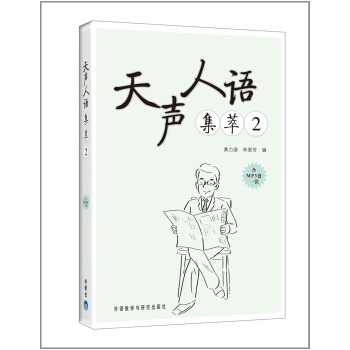


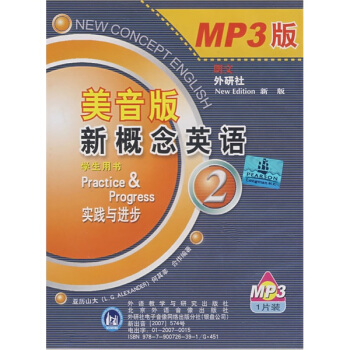
![牛津英文經典:城堡(英文版) [The Castle] pdf epub mobi 電子書 下載](https://pic.windowsfront.com/11886753/56dfebd0N84551674.jpg)
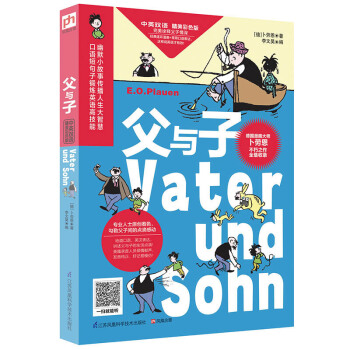
![體驗英語少兒閱讀文庫 setC 數學和認知(第5級)(適閤10-12歲)(套裝共6冊+MP3) [10-12歲] pdf epub mobi 電子書 下載](https://pic.windowsfront.com/10706650/54ced04bNac9ec0db.jpg)
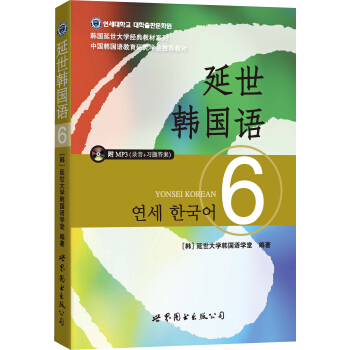
![漠客疑雲(第2級 適閤初中高年級)劍橋雙語分級閱讀 小說館 [The Man from Nowhere] pdf epub mobi 電子書 下載](https://pic.windowsfront.com/11501531/53c7a502N8fa908e2.jpg)

